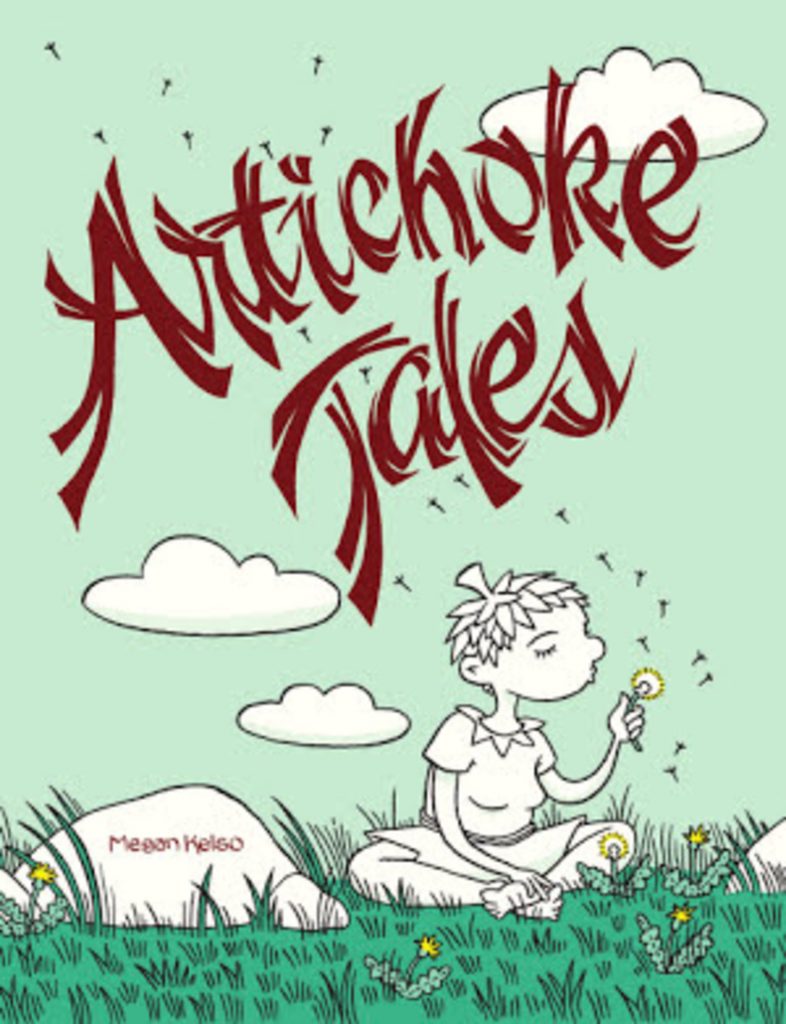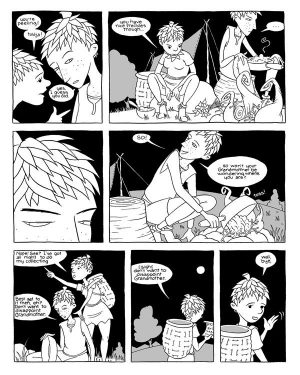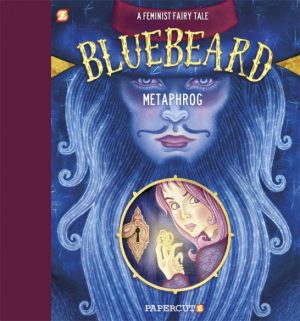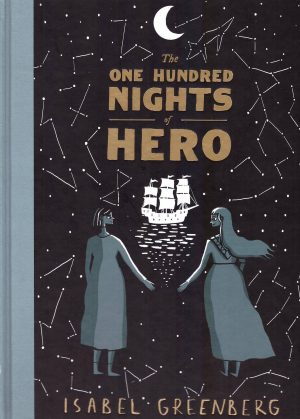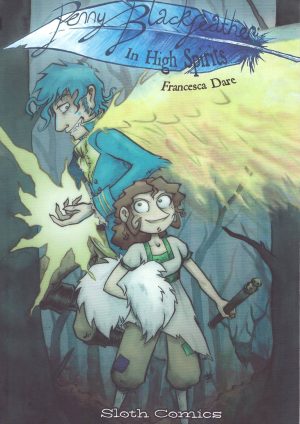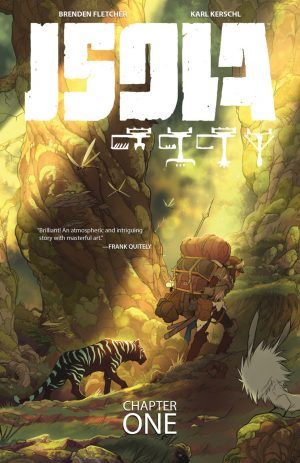Review by Win Wiacek
Megan Kelso has been producing unique, idiosyncratic, thought-provoking comics stories for over thirty years. She works far too slowly for her audience’s liking, but the results are always superb.
Artichoke Tales is a generational saga that recounts, like film run backwards, the aftermath, events of and build-up to a tragic and devastating civil war on a serene, stable agrarian culture. This land of farmers, foragers and fisher-folk all look like they’re sporting vegetable hair-dos. Don’t be fooled. Despite stalks sprouting from their skulls these are not Arcadian vegan characters dreamily dwelling in their own sylvan Pogle’s Wood: these are people, gullible, fallible and intensely complex.
Kelso began this epic in 1999, citing such thematic influences as the Little House on the Prairie books, Colleen McCullough’s The Thorn Birds and Anthony Minghella’s Cold Mountain for her gently compelling, beguiling story of the Quicksand family. They’re apothecaries to the village of Ladle where an insane and unwelcome split between North and South sorely wounds not only the nation, but three generations of women caught up in it.
Young Brigitte was gathering herbs for her grandmother when she once again met the dashing soldier Adam. Military types weren’t particularly welcome and Northerners even less so, despite all the years that had passed since the War, but young hormones and the promise of something fresh and exotic always win out over common sense. Torn between imminent passion, a sudden hatred for her boring old life and fear of the unknown, Brigitte forces Grandma Charlotte to tell the previously unspoken history of the conflict and how it shaped the Quicksand family. It’s a tale of pride, high-handedness and avoidable mistakes that led to bitter prejudices that still scar people on every side.
Told in a stunning minimalist manner demanding the reader’s closest scrutiny and collaboration, the refined drawings unfold stories within stories, like the skin of an onion, with truths peeling away to reveal some depressingly universal truths about families, society and the use of power. Despite the engagingly simple art and storytelling style, this is not a book for younger readers, so parents should read this beautiful parable before letting kids at it. Those without impressionable progeny can just go right ahead and dig in. Artichoke Tales is truly magical and awaits your avid, appreciative attention and consumption.
